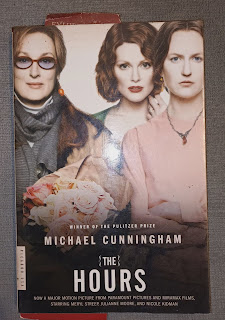- "As a writer, I try to operate within a framework of Christian principles, and the words that are important to me are religious words: witness, pilgrimage, intention. I think of intention as the writer's soul. Writers can write to affirm and to celebrate, or they can write to debunk and to destroy, the choice is ours. Editors may ask us to do destructive work for some purpose of their own, but nobody can make use write what we don't want to write. We get to keep intention."
I have 24 hours each day. Home alone, I promised to lessen the hours I spend in not writing, and add hours to any writing that will yield something concrete. But after mapping my writing goals, I am overwhelmed. I wish I could match my intentions with discipline. I had some success today, having entered something on my journal, finally, after months of neglect.
My entire morning was spent reading the December 2002 issue of The New Yorker (I bought this on sale because there is a long essay on writing by Norman Mailer.) Norman Mailer says,
- "When a surgeon operates on a yong girl, he isn't saying, 'I'm going to make an incision on this young lady's stomach that not only is going to scar her but will affect her sex life to some degree for the next thirty years.' He just says, 'Scalpel, Nurse," and does it. The surgeon is focused on the act, not it's reverberations.
"As a novelist, you are engaged in something analogous. Novelists are oxymorons.They are sensitive and insentitive. Full of heart and heartless. You have to be full of heart to feel what other people are feeling. On the other hand, if you start thinking of all the damage you are going to do, you can't write the book-not if you're reasonably decent. The point is that you are facing a true problem. Either you produce a book that doesn't approach what really interests you or, if you go to the root with all you've got, there is no way you won't injure family, friends, and innocent bystanders." from Birds and Lions - writing from the inside out.
Yesterday I finished reading "Blessings" by Anna Quindlen. Although I didn't find it engrossing, I am re-reading it as a writer. I try to trace plotting and characterization and how Quindlen seamlessly wove past and present. Quindlen says,
- "The beginning and the end are never really the journey of discovery for me. It is the middle that remains a puzzle until well into the writing. That's how life is most of the time, isn't it? You know where you are and where you hope to wind up. It's the getting there that's challenging."
— Anna Quindlen (Object Lessons)



No comments:
Post a Comment